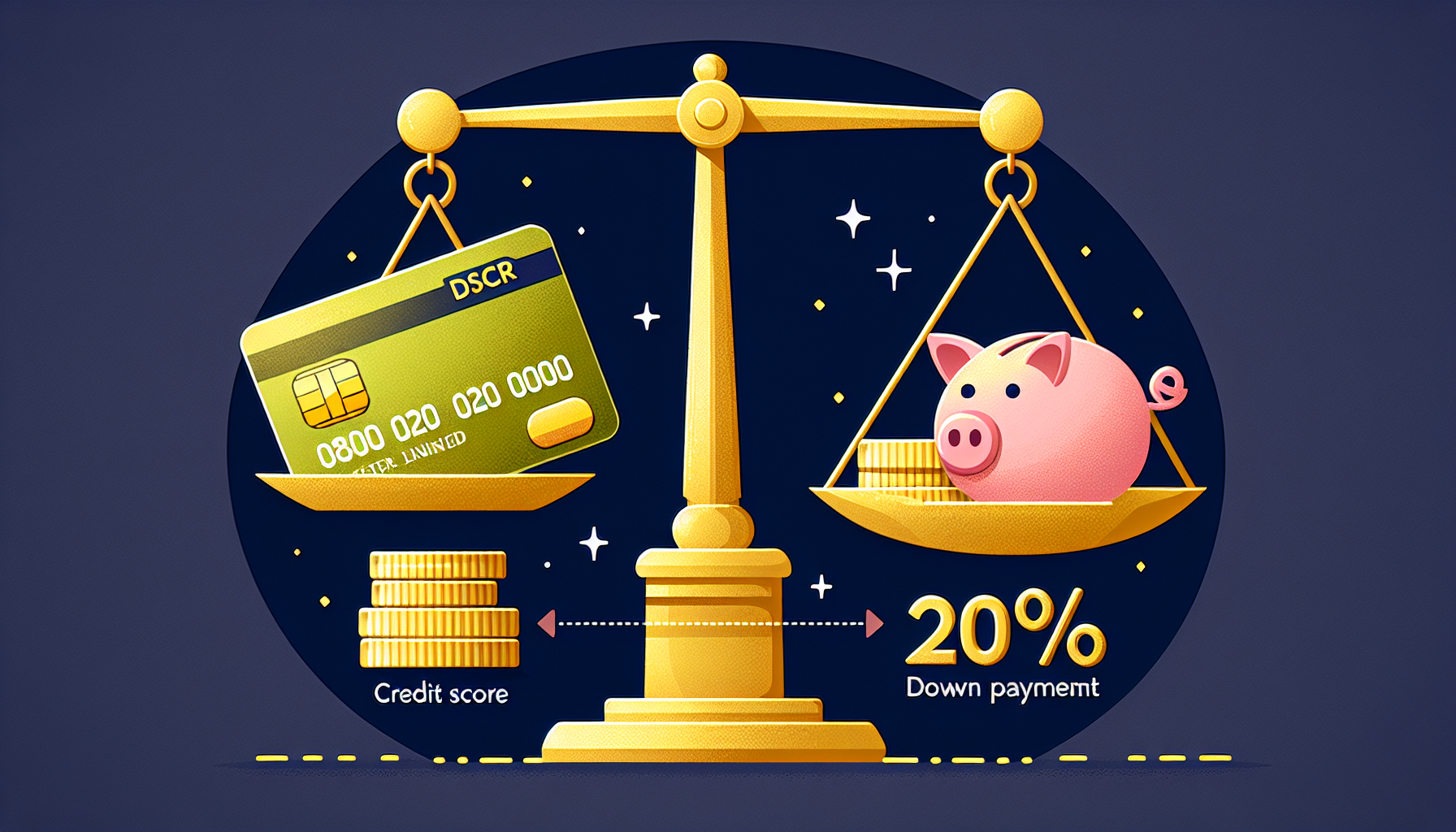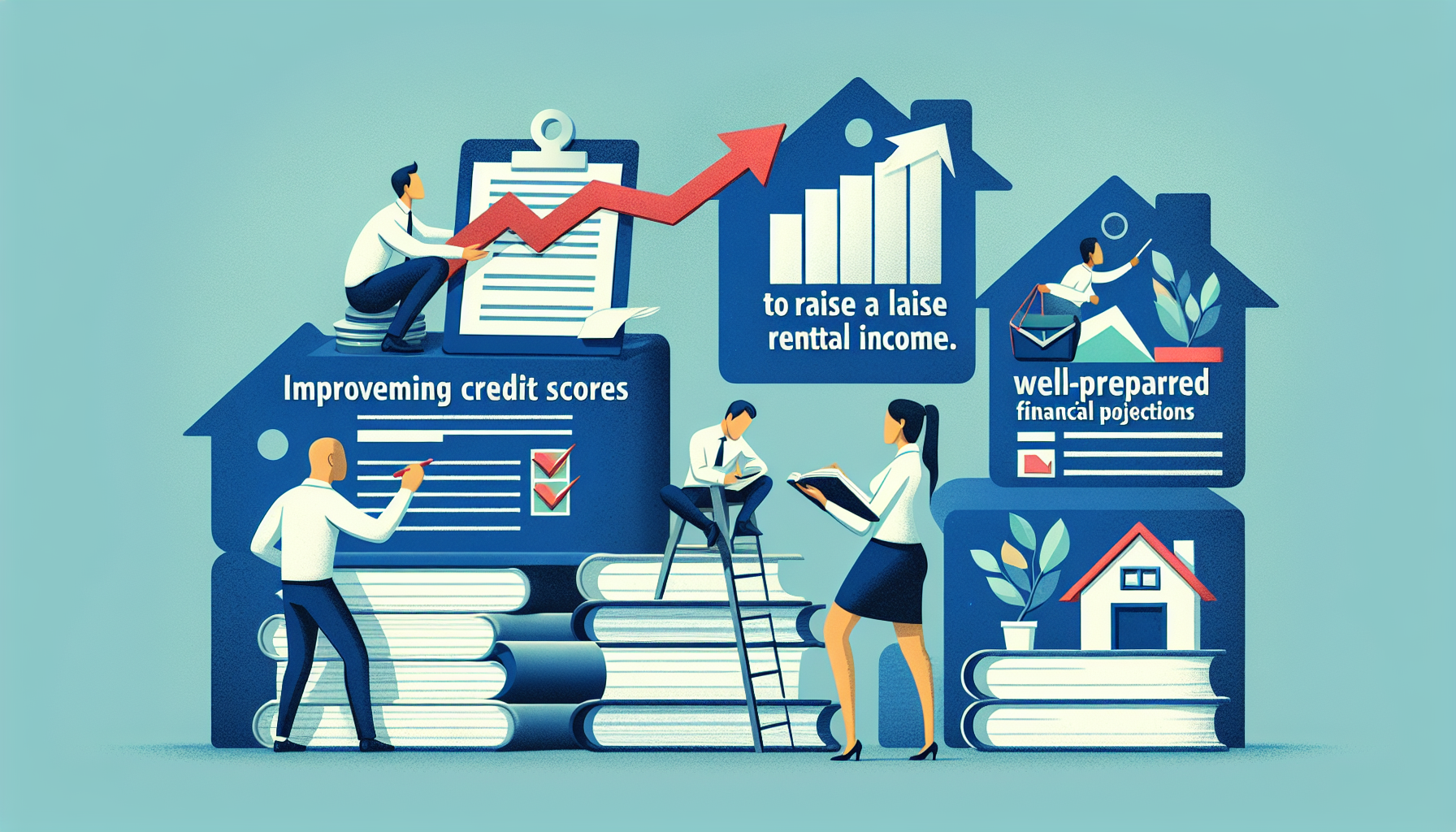Welcome to Capital Group
Learn About DSCR Loan Pros and Cons
Find out what are the DSCR Loan Pros and Cons are before applying for a loan. Get the Pros and Cons of DSCR Loans and Learn How They Work. Debt service coverage ratio loans.
Debt Service Coverage Ratio (DSCR) loans are a type of financing used primarily in real estate investment, where the loan eligibility is determined by the cash flow generated by the property rather than the borrower’s personal income. Here’s a brief look at the pros and cons:
Pros
- Less Emphasis on Personal Income: DSCR loans focus on the income-producing potential of the property, making them ideal for investors who may not have traditional income sources but own cash-flowing properties.
- Flexible Lending Criteria: These loans often have more flexible lending criteria than traditional mortgages, which can benefit investors with fluctuating incomes or unique financial situations.
- Potential for No Income Verification: Borrowers might not need to provide extensive documentation regarding their personal income, which simplifies the application process.
Cons
- Higher Interest Rates: Because DSCR loans can be riskier for lenders, they often come with higher interest rates compared to conventional loans.
- Larger Down Payments: Investors might need to put down larger down payments to qualify for a DSCR loan, reflecting the increased risk associated with basing a loan primarily on property income.
- Dependence on Property Performance: If the property does not perform as expected in terms of cash flow, it could impact the borrower’s ability to make loan payments, which might lead to financial strain or risk of foreclosure.
These loans are particularly attractive to real estate investors but come with specific considerations related to property performance and financial costs.
What is a DSCR Loan?
A DSCR loan, also known as a debt service coverage ratio loan, is a type of mortgage loan specifically designed for real estate investors. Unlike traditional mortgages, which heavily consider personal income and assets, DSCR loans primarily focus on the property’s income and its ability to cover the monthly mortgage payments, which include the principle, interest, taxes and insurances (PITI’s). The primary function is to measure the investment property cash flow.
DSCR Loans
Get Access to DSCR Loans With Capital Group
DSCR loans are for real estate investors who invest in real estate properties
Fast DSCR Loan Programs
Get Approve For A DSCR Loan Programs for Investors
Capital Group offers DSCR loans in Nationwide. We offer DSCR loans calculators for home DSCR loans and commercial real estate DSCR loans to determine the income, credit and reserve requirements to qualify for e-commerce transactions. As a private money lender we can lend you a private money DSCR loan quickly, without requiring much documentation, and only on the cash amount of your equity is our primary underwriting criteria as an asset base loan.
DSCR Loans for Active Investors
As a real estate investor seeking higher return on investment deals you will need to find a private lender that will help you build your portfolio and who can close fast on more profitable real estate deals such as Capital Group.

Serving Real Estate Investors & Business Owners
Business Industries
Countries


Get Started
Find The Private Money For Real Estate & Business
Rehab Fix & Flip Loans
Fix and Flip loans are short-term, small-business loans that real estate investors utilize to purchase and renovate investment properties for resale that we like to call After Repair Value (ARV) which is a force appreciation strategy.
Bridge Loans & Term Loans
Bridge Loans are short-term financing investment loans which are used until the investor secures permanent financing and it’s mostly used for immediate cash flow to acquire the real estate assets. Some investors exit strategy is to sell.
Ground-UP Construction Loans
Ground-Up construction loans typically have project costs and need cash reserves. Development experience is required. We offer programs for a single home or an entire development.
Business Financing
We offer Business Loans with a variety of business financing programs that will get you the funding for your business. We offer over loans from $5,000 – $100 Million.
DSCR Loans Market Overview
The current market overview for Debt Service Coverage Ratio (DSCR) loans reflects some key trends and conditions impacting real estate investors. DSCR loans, which allow investors to leverage rental income to qualify for financing without the need for traditional income verification, have various attributes and market dynamics:
-
Interest Rates and Costs: DSCR loans typically have higher interest rates than conventional loans due to the perceived higher risk associated with not verifying personal income. These rates can fluctuate based on factors like the borrower’s credit score and the property’s loan-to-value (LTV) ratio. The market is seeing some volatility in interest rates, driven in part by broader economic conditions such as rising mortgage rates.
-
Loan Requirements: Common requirements for securing a DSCR loan include a minimum DSCR ratio, usually around 1.25, to ensure the property generates enough rental income to cover the debt. Lenders may also require a minimum credit score (often around 620 or higher depending on the lender) and a substantial down payment, typically 20-30%. The appraisal of the property and verification of rental income are also crucial.
-
Market Conditions: The market for DSCR loans is influenced by the overall real estate market conditions, including property values, rental market strength, and investor demand. Currently, there is an expectation of slowing rent growth, particularly in the multifamily sector, which could affect DSCR calculations and the viability of new loans. Moreover, high interest rates have compressed DSCRs, making it harder to achieve favorable loan terms (SPGlobal).
-
Loan Features: Some DSCR loans offer interest-only payment options for an initial period, which can lower initial outlays and improve cash flow for investors. However, these loans transition to regular amortizing payments that include principal, which could significantly increase monthly costs later.
-
Market Opportunities and Risks: The flexibility of DSCR loans makes them attractive for investors who may not qualify for traditional financing due to variable income from rentals or other investments. However, the reliance on rental income introduces risks, especially if the property experiences vacancies or if rental income decreases due to market conditions.
Investors considering DSCR loans should carefully evaluate their investment strategy against current and forecasted market conditions, particularly in terms of rental income stability and property appreciation prospects. Additionally, comparing different lenders‘ terms and requirements is crucial to securing the best possible financing conditions.
DSCR Loan Pros and Cons for Investment Properties
How To Find Private Money Lender With A Private Money Lender Portal?
Navigating the landscape of private financing requires a deep understanding of where to find a “private money lender near me.” This journey can significantly impact your ability to secure funding for investment endeavors, particularly in real estate. Private money lenders, distinct from conventional banking institutions, offer a pathway to funds that might otherwise be inaccessible. This comprehensive guide aims to illuminate the process of finding a private money lender near you, ensuring that your investment projects, whether they are centered on real estate or other ventures, have the financial backing they need to flourish.
Business Loan Types
DSCR Loan Demystified: How to Secure Investment Property Financing
What if your investment property could qualify for a loan based on its cash flow alone? DSCR loans, or “DSCR loan” options, offer this possibility, catering to investors with varied income streams. In this guide, we’ll unpack the qualifications, mechanics, and strategic use of DSCR loan options in your real estate portfolio.
Key Takeaways
- DSCR loans are tailored for income-producing properties and evaluate a borrower’s eligibility primarily based on the property’s cash flow instead of personal income, which may benefit investors with inconsistent or self-employed income.
- Key factors for DSCR loan eligibility include a strong credit score, minimal DSCR requirement (typically between 1.2 and 1.25), and a sizeable down payment, with the potential for more favorable terms if a higher DSCR is achieved.
- Despite offering several advantages such as flexibility in acquisition through LLCs and no requirement for personal income documentation, DSCR loans often come with higher interest rates and down payment requirements, which could pose challenges for some borrowers.
Understanding DSCR Loans
DSCR loans are mortgage products tailored for residential income-producing properties, uniquely focusing on the property’s cash flow rather than the borrower’s personal income. This makes them particularly significant for investors who might have inconsistent or self-employed income. Their compatibility with various investment strategies, from short-term rentals to the BRRRR method, positions them as a versatile tool in an investor’s arsenal.
By prioritizing the income generated by the property, these mortgage loan options stand apart from traditional mortgage loans that often tether approval to the borrower’s personal financial history.
How DSCR Loans Work
In the evaluation of eligibility for DSCR loans, lenders focus on the income the property generates and its potential, differing significantly from the personal financial scrutiny associated with conventional mortgage loans. DSCR loans can come with either fixed or variable rate mortgages, providing a range of terms that can match investors’ diverse strategies and objectives. For instance, a 5/6 ARM could provide an initial period of stability followed by regular adjustments to adapt to market changes.
Applicants during the loan approval process need to furnish various documents such as bank statements, property leases, and rental history. The strength of a DSCR loan application hinges on an effective rental property management strategy that maximizes income and ensures consistent occupancy rates, thus demonstrating the property’s ability to cover debt payments. This approach to loan financing may come with significant surprises for the uninitiated, offering a refreshing departure from the traditional bank statement loans.
Key Factors in DSCR Loan Eligibility
Obtaining a DSCR loan is not just about having a promising property; several key factors play a crucial role. A strong credit score is paramount, influencing not only eligibility but also the terms of the loan, including the interest rate. Most lenders uphold a minimum DSCR requirement, often between 1.2 and 1.25, ensuring that the property generates sufficient income to maintain cash flow above the debt obligations.
Down payments are another crucial aspect of DSCR loan financing, with requirements typically starting at 20% of the property’s purchase price. Achieving a higher DSCR can be a bargaining chip, potentially unlocking more favorable terms such as lower interest rates or higher loan amounts.
Conversely, a DSCR ratio falling below 1.0 might necessitate greater down payments and possibly a higher credit score, underscoring the importance of a robust financial profile.
The DSCR Calculation Process
The DSCR calculation involves a division of the property’s gross annual rental income by the total debt, represented by the acronym PITIA – principal, interest, taxes, insurance, and association dues. A ratio above 1.2 is considered solid, while surpassing 1.5 is indicative of a strong positive cash flow position. This straightforward but essential formula directs loan approval and terms, as lenders analyze the Net Operating Income (NOI) and all existing debt obligations due within a year.
A robust DSCR signals not only a property’s adeptness at generating income to cover mortgage payments but also influences loan eligibility and terms. A ratio below 1.0 is a red flag, suggesting that the income is insufficient to support the debt service. Hence, a thorough understanding of this calculation is imperative for any real estate investor looking to secure DSCR loan financing.
Advantages of DSCR Loans for Real Estate Investors
Many real estate investors are drawn to DSCR loans due to their focus on the property’s cash flow, bypassing the conventional need for personal income documentation. This shift offers opportunities for investors whose financial circumstances may not conform to the strict requirements of traditional mortgage loans, even when dealing with negative cash flow properties. Moreover, the property’s net operating income, rather than tax returns, becomes the central figure in determining loan eligibility.
Another compelling advantage is the flexibility of funding investment properties through an LLC, offering asset protection and keeping the investment separate from personal credit reports. Additionally, the spectrum of DSCR loan financing extends to jumbo loans, catering to those eyeing luxury or high-cost investment property. This diversity in borrowing options positions DSCR loans as a powerful instrument in a real estate investor’s toolkit.
Beyond the more apparent benefits, DSCR loans can also feature:
- Interest-only payment options, which, while reducing monthly payments, can enhance the DSCR ratio, thereby improving loan qualification prospects.
- Investors can choose between fixed-rate or adjustable-rate mortgage structures, with fixed-rate options being particularly favorable for long-term investment strategies.
- The typically streamlined qualification and approval process further sweetens the deal, simplifying the path to securing financing for one’s investment endeavors.
Potential Drawbacks and Risks of DSCR Loans
It’s worth noting, DSCR loans often carry higher interest rates compared to traditional loans, which can elevate the borrowing cost. This surge in interest rates can directly impede achieving a favorable Debt Service Coverage Ratio, presenting a challenge for prospective borrowers. Additionally, DSCR loans may tether borrowers with prepayment penalties, an unwelcome cost for those looking to settle their debt ahead of schedule. Understanding the service coverage ratio dscr is crucial for borrowers to make informed decisions.
The loan terms themselves can also be less accommodating than those of conventional mortgages, potentially lacking the flexibility some borrowers need. Furthermore, investors looking to finance mixed-use properties or certain types like elder care facilities may find DSCR loans elusive due to market volatility and lending restrictions. And with higher down payment requirements typically in play, securing a DSCR loan demands a significant upfront financial commitment.
Tips for Improving Your DSCR Loan Application
Improving a DSCR loan application begins with personal credit. An increase in your FICO score can result in more advantageous loan interest rates. For instance, an increase from 711 to 750 may result in a reduction of 0.25% in interest rates, which can significantly boost investment profitability and, by extension, the DSCR. Additionally, raising rental income through strategic property renovations or the addition of amenities can make the loan application more compelling.
Another effective strategy is refinancing existing mortgages to more favorable terms, thereby reducing monthly payments and improving the overall DSCR. When applying for a DSCR loan, presenting well-prepared financial projections and a solid business plan can also amplify the credibility of the borrower. Such meticulous preparation can set the stage for a stronger case in securing the desired financing.
Navigating the DSCR Loan Process
Efficiently handling the DSCR loan process calls for strategic collaborations and meticulous preparation. Partnering with a loan officer who specializes in DSCR loans can provide bespoke advice and guide you through the application nuances. Inquiries about specific DSCR loan requirements can be addressed during an appointment with a loan specialist, who can offer detailed insights and assist with the groundwork for a strong application.
Understanding the loan’s terms, such as interest rates, fees, and whether the interest rate is fixed or adjustable, is a crucial step before commitment. Evaluating flexible loan features on offer, such as interest-only payment periods or balloon payments, can also influence decision-making. And, of course, assembling detailed financial documentation, managing existing debt, and showcasing the property’s rental income potential are all part of ensuring a well-rounded application that stands up to the scrutiny of lenders. Considering your monthly mortgage payments is another essential aspect of this process.
DSCR Loan Success Stories
As the saying goes, the proof is in the pudding, and DSCR loans have their fair share of success tales. Take Seth, for example, who leveraged a DSCR loan to provide a 20% down payment on three different investment properties, thereby significantly expanding his real estate portfolio within a year. His story is a testament to the potential of DSCR loans in enabling substantial portfolio growth.
In San Diego, another investor utilized a $500,000 DSCR loan to undertake significant renovations on a four-unit property, leading to increased rental incomes and a substantial enhancement in property value. This strategic move ultimately allowed the investor to sell the property for a hefty profit, showcasing the transformative impact that well-executed DSCR loan financing can have on investment outcomes.
Alternatives to DSCR Loans
For investors exploring different options, hard money loans present a significant alternative to DSCR loans. Offered by private lenders, these loans are secured by the property itself and are typically geared towards short-term investments such as fix-and-flips. While they come with higher interest rates and fees compared to traditional loans, the qualification criteria are less stringent, making them a viable option for those with less-than-ideal credit profiles or high debt-to-income ratios.
Hard money loans can serve as a bridge for investors, providing the necessary funds to jumpstart a project while they work towards meeting the requirements for more conventional financing options. This flexibility, coupled with the relatively quick approval process, makes hard money loans an attractive choice for many real estate investors looking to capitalize on immediate opportunities.
Understanding DSCR Loans: Pros and Cons
In the realm of real estate investing, securing financing is often a critical step towards achieving your investment goals. Capital Group offers one financing option that has gained traction among real estate investors is the Debt Service Coverage Ratio (DSCR) loan. In this article, we delve into the pros and cons of DSCR loans to provide a comprehensive understanding for potential borrowers.
What is a DSCR Loan?
A DSCR loan, also known as a debt service coverage ratio loan, is a type of mortgage loan specifically designed for real estate investors. Unlike traditional mortgages, which heavily consider personal income and assets, DSCR loans primarily focus on the property’s income and its ability to cover the monthly mortgage payments.
Pros of DSCR Loans:
- No Personal Income Requirement: DSCR loans do not typically require personal income verification, making them ideal for investors whose personal income may not meet traditional mortgage requirements.
- Based on Rental Income: These loans evaluate the property’s income, such as rental income, to determine the borrower’s eligibility and loan terms. This allows investors to leverage the property’s earning potential rather than relying solely on personal financial credentials.
- Low Down Payment Options: While traditional mortgages often require a substantial down payment, DSCR loans offer flexibility with down payment options. Investors may find options for low down payments, such as 15 percent or 20 percent, enabling them to preserve capital for other investment opportunities.
- Cash Flow Generation: By leveraging the property’s rental income, DSCR loans enable investors to generate income from their investment properties. This cash flow can contribute to covering expenses, servicing debt obligations, and potentially yielding profits.
- Cash Out Refinance Opportunities: DSCR loans may allow investors to perform cash-out refinances based on the property’s income rather than personal creditworthiness. This can provide access to additional capital for further investments or property improvements.
- Minimal Credit Score Requirements: While most lenders still assess creditworthiness, DSCR loans may have more lenient credit score requirements compared to conventional mortgages, making them accessible to a broader range of investors.
Cons of DSCR Loans:
- Higher Interest Rates: DSCR loans typically come with higher interest rates compared to conventional mortgages. This is due to the higher risk associated with investment properties and the absence of personal income verification.
- Stricter DSCR Requirements: Lenders scrutinize the property’s income and expenses to ensure the debt service coverage ratio meets their criteria. If the property’s cash flow is insufficient to cover the mortgage payments, obtaining approval for a DSCR loan may be challenging.
- Limited Eligibility for Owner-Occupied Properties: DSCR loans are primarily geared towards investment properties rather than owner-occupied homes. Therefore, individuals seeking financing for their primary residence may need to explore other loan options.
- Potential for Cash Flow Surprises: While DSCR loans evaluate the property’s income, unexpected changes in rental income, operating expenses, or market conditions can impact the property’s cash flow. Investors should be prepared for fluctuations that may affect their ability to service debt obligations.
- Higher Minimum Loan Amounts: Some lenders impose minimum loan amounts for DSCR loans, which may be higher than those for conventional mortgages. This could limit financing options for smaller investment properties.
In conclusion, DSCR loans offer real estate investors an alternative financing solution tailored to the income-generating potential of their investment properties. While they provide flexibility and accessibility, investors should carefully weigh the pros and cons to determine if DSCR loans align with their investment objectives and risk tolerance. Consulting with a financial advisor or mortgage professional can provide further guidance in navigating the complexities of DSCR loan programs.
Summary
In summary, DSCR loans present a compelling financing option for real estate investors, offering a pathway to secure funding based on a property’s cash flow potential rather than personal income. With advantages like easier qualification, flexible borrowing options, and the ability to fund through an LLC, these loans can be a strategic asset for building and growing a real estate portfolio. While mindful of the higher interest rates, less favorable terms, and certain restrictions, investors equipped with a strong application and understanding of the process stand to reap the benefits of DSCR loans. Some investment properties haven’t stablize and a good alternative is a bridge loan program.
Let this exploration serve as your guide and inspiration to delve into the world of DSCR loans. Whether you’re looking to expand, renovate, or simply start your investment journey, remember that with careful planning and strategic action, securing the right financing can propel you towards realizing your real estate ambitions.

Equipment Financing Loans
Equipment financing is a type of loan that enables small businesses to purchase the equipment and machinery needed to conduct business and grow their company.
Accounts Receivable Financing
Accounts receivable financing is a type of financing arrangement which is based on a company receiving financing capital in return for a chosen portion of its accounts receivable.
Factoring Financing
Factoring functions similarly to a credit card where the bank or lender (factor) is buying the debt of the customer without recourse to the seller. It is used to get cash quickly.
Merchant Financing
A merchant cash advance is a type of loan financing for small businesses that need capital immediately to cover cash-flow shortages.
Business Line of Credit
A business line of credit is a revolving form of small business funding that operates similar to a credit card that only charges interest on the amount you use of the line of credit.
SBA Loans
SBA loans are guaranteed by the Small Business Administration (SBA) and range from small to large loans which can be used for most business purposes.

Leadership Team Since 1991
Years in Business
Clients
$ Loans
We provide commercial loans for business owners and commercial real estate loans with our private capital. We also have access to 3,000 plus lenders who compete for your business, which allows us to offer you low competitive rates and save time in raising the capital needed for your venture. Our clients are offered loans for Commercial Real Estate Loans, Asset Based Loans, Working Capital Loans, Equipment Lease Loans, Factoring, Trade Financing, Hard Money Loans, Merchant Financing, Small Business Administration Loans (SBA), Structured Financing, Unsecured Lines of Credit.
Understanding the Dynamics of Private Money Lending: A Comprehensive Guide
In the complex landscape of real estate investing, individuals often seek alternative financing solutions to fund their projects, and private money lending has emerged as a viable option. Private money loans, offered by private money lenders, have become a crucial resource for many real estate investors looking to secure funding outside traditional financial institutions. This article delves deep into the intricate workings of private money lending, exploring its nuances, benefits, and potential pitfalls.
The Role of Private Money Lenders
Private money lenders play a pivotal role in the real estate investing business. These entities, often individuals or private lending companies, offer private money loans to borrowers for various purposes, such as purchasing investment properties, funding construction projects, or supporting real estate development ventures.
Capital Group is Top DSCR Loan Lender in 2024
DSCR Loan Program
Frequently Asked Questions
What exactly is a DSCR loan?
A DSCR loan is a mortgage designed for residential income-producing properties, focusing on the property’s cash flow rather than the borrower’s personal income. It’s tailored to suit this specific type of investment.
How does the DSCR calculation work?
The DSCR calculation involves dividing the property’s annual gross rental income by the total property debt (PITIA), with ratios above 1.2 considered solid and above 1.5 considered strong. This helps lenders assess the property’s ability to cover its debt obligations.
What are some benefits of DSCR loans for real estate investors?
DSCR loans offer easier qualification based on the property’s income, the option to fund properties through an LLC for asset protection, and the availability of jumbo loans for larger investments, making them beneficial for real estate investors.
Can DSCR loans have drawbacks or risks?
Yes, DSCR loans can have drawbacks such as higher interest rates, prepayment penalties, and restrictions on financing certain property types. Be aware of these factors before considering a DSCR loan.
Are there alternatives to DSCR loans for financing real estate investments?
Yes, hard money loans are a popular alternative to DSCR loans for real estate investments, offering short-term financing with less strict qualification criteria.
Capital Group is the premiere lender for Debt Service Coverage Ratio Loans. We have multiple DSCR programs that can work with just about any annual mortgage debt with our interest payments only loans. This keeps the monthly loan payments low with a minimum credit score of 620.
Local Private Money Lender Near Me
Seeking a Private Money Lender Near Me
When embarking on the journey to find a “Private Money Lender Near Me,” real estate investors can employ strategic methods to identify local lenders who understand the nuances of the regional market.
Get Started
Start your new financial journey with Group Capital
Get in touch
Contact US Today
+1 (888) 588-2254
1420 Celebration Blvd, Suite 200, Celebration, FL 34747.









